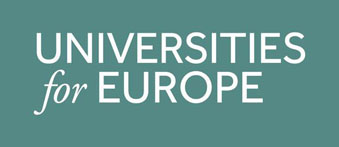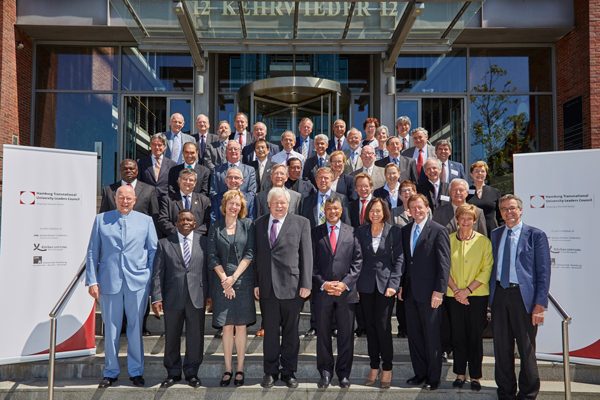Speech delivered as UUK president elect, at the Universities for Europe campaign launch at UCL.
Thank you Michael for that introduction, and for allowing UCL – London’s global university – to restrict its focus for today to the issue of Europe and the launch of the Universities for Europe campaign.
Before the end of 2017, perhaps as early as 2016, voters across the UK will be asked to decide the future of our country’s relationship with the European Union. We don’t know yet when this vote will be or what reforms the Prime Minister will have negotiated by that time, but one thing is clear: this referendum is a decisive moment for us all and for the future of our country.
This is why Universities UK – the organisation that represents our universities – is committed to playing a positive and proactive role in the national debate over the coming months.
University leaders in England, Wales, Scotland and Northern Ireland see the future of university teaching and research as intertwined with the future of Europe. Scholars and students have always wandered across Europe to the great universities of European civilisation. We wish to protect and promote that ability to share and grow knowledge, exchange ideas and experiences and allow the best minds to collaborate for the benefit of all of society.
The UK’s membership of the European Union makes the UK’s outstanding universities stronger, contributing to economic growth, employable graduates and cutting edge research discoveries.
Our universities are about the future of this country. We generate new knowledge and understanding for future innovation with wide impact in terms of economic, social and cultural benefit. We provide the next generation of people with the skills and understanding for the jobs and insights needed for our future prosperity. The choice is whether we can better support future UK graduates and provide better benefits for society inside or outside the European Union.
Universities across the United Kingdom contribute significantly to Britain’s top place in the global influence rankings. Universities like UCL are in the top ten in the world. We have a strong global reputation. And, as both the Chancellor and Business Secretary commented recently, this confers a significant competitive advantage for our economy. Within the European Union we benefit from being a member of the biggest block of knowledge in the world. We can influence this body of knowledge and in turn draw strength from it.
UK students and researchers have opportunities to experience living and working in continental Europe. The Erasmus programme – one of the most well-known schemes to foster mobility between European universities – has benefitted more than 200,000 British students and over 20,000 British university staff to date. This is not about academic tourism but about building networks and absorbing other languages and cultures. These are the insights needed for our students to become the global leaders of tomorrow. And the benefits last beyond the time they spend studying and researching.
Universities can access top talent from across Europe. Fourteen percent of academic staff in UK universities are from the EU, helping to ensure that our universities – and thus our nation – remains at the cutting edge of knowledge and innovation. Moreover, there were 125,000 EU students studying at UK universities in 2012-13, generating £2.27 billion for the UK economy and 19,000 British jobs in local communities.
The European Union supports research, knowledge, innovation and technology – the factors that will decide future economic growth, productivity and human progress. It is in part through our membership of the EU that UK Universities are creating employment opportunities and innovations –strengthening the UK’s position in the world.
The research funding we receive from Europe – worth around 1bn pounds in 2013 – is undeniably important to the UK research base and to our economy more widely. But, most crucially, it is the access to research partners and an extensive global network of collaboration which have helped keep UK universities at the cutting edge of research. The EU makes working across borders easier, allowing UK and European researchers to pool their knowledge, infrastructure and resources to achieve more together than they could do alone. By supporting collaboration and breaking down international barriers, the EU helps UK universities to deliver cutting-edge research and to make discoveries that improve people’s lives and enhance the UK’s global influence.
Of course, I recognise that the EU is far from perfect. Reforms are needed in some areas and the UK’s International Higher Education Unit is playing an active role in the debate in Brussels. However, for the UK to have significant say in those reforms we need to commit to a future in the EU. It will take a number of years to debate and deliver many of the necessary reforms working with our European partners.
It is abundantly clear that the UK’s membership of the European Union has an overwhelmingly positive impact on our world-leading universities. UK universities are at the heart of the biggest knowledge producing region in the world – and we all benefit from that – individuals, the economy and society.
From today, those of us in universities want to inspire debate and ensure that it is informed and strengthened by evidence. Universities UK is committed to ensuring that the significant benefits of EU membership to our universities – and through them, to the British people – are properly explained.
Through the Universities for Europe campaign:
- We want universities to be a positive voice promoting the value of EU membership for higher education and research;
- We want the national referendum debate to be informed and strengthened by evidence coming in part from our academic colleagues;
- We want to inform the British public about how EU membership enables UK universities to have a positive impact on individuals, the economy and society, and;
- We want universities to be places to host public debate and provide academic expertise whatever side of the debate you are on.
The Universities for Europe campaign, led by Universities UK, will ensure that the university sector is a strong, positive voice in the referendum debate.
Over the coming months the campaign will promote powerful evidence and highlight compelling stories about the benefits of EU membership and will host public debates across the country working with partners in the university sector and beyond.
Universities will open their lecture halls to host public debates to discuss the pros and cons of membership of the EU. Some of us – such as my own university – the University of Kent – have already started. At Kent we are holding public ‘in conversation with’ events with our chancellor – Gavin Esler, where he is interviewing prominent figures about their views on Europe.
Today is just the start for the Universities for Europe campaign. We want universities to get actively involved.
In the referendum debate universities must stand up and be counted. We should be a powerful and positive voice on the benefits of EU membership.
If you’re a student – make sure you register to vote, and participate in discussions on your campus and in your community; if you’re an academic – make sure you share examples of how the EU has benefited your work; and if you’re a university leader – make sure that your staff and students are aware of the issues and make sure your voice is heard in on decisive issue for our country.
This is not just about the future success of universities, it’s even more important than that.
It’s about ensuring the future prosperity of the UK…
It’s about maximising the chances of new discoveries that enhance our society…
It is about tackling major challenges that affect all countries in Europe and beyond…
It’s about the UK’s standing in the world, and …
It’s about opportunities for British people now and in the future.
Thank you – and I look forward to working with you.

